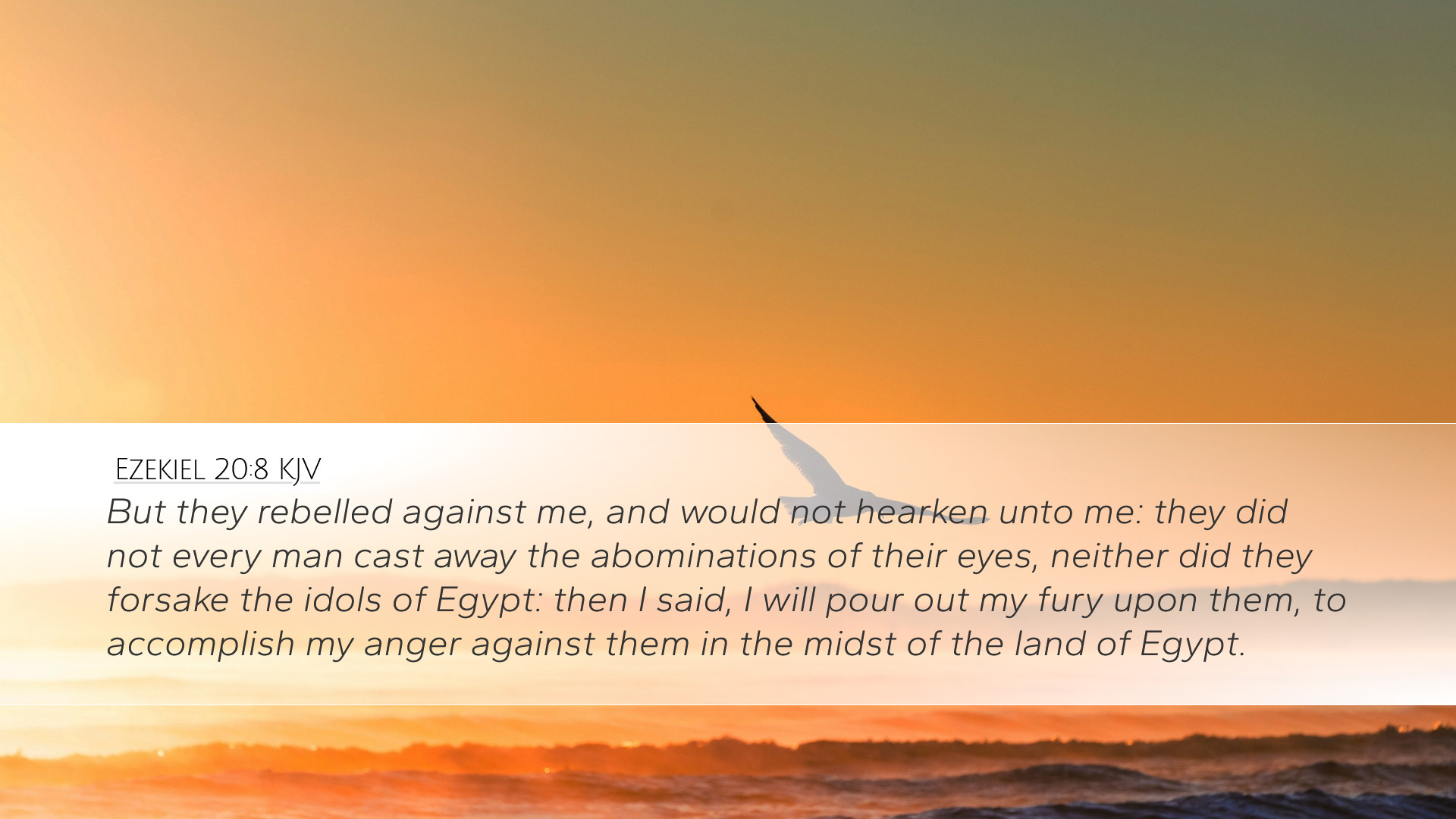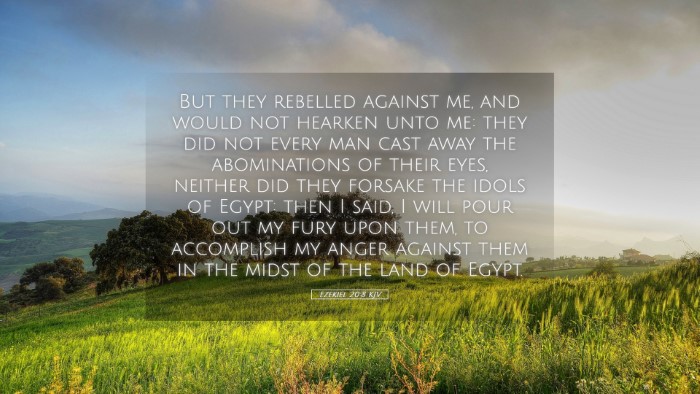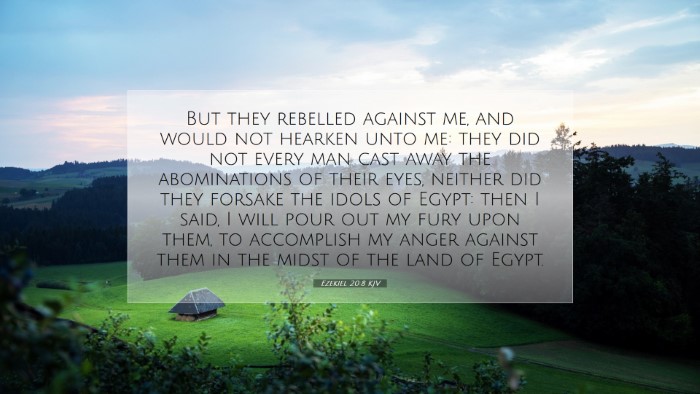Ezekiel 20:8 Commentary
The verse Ezekiel 20:8 states:
"But they rebelled against me and would not listen to me; they did not throw away the detestable idols they had." (Ezekiel 20:8, NIV)
Contextual Overview
The Book of Ezekiel serves as a prophetic warning to Israel regarding their idolatry and disobedience. In the broader context of chapter 20, God recounts Israel's history and the pivotal moments where they turned away from His commandments. This verse specifically highlights their refusal to heed God's voice and the consequence of their continued rebellion.
Thematic Insights
- The Nature of Rebellion: In this passage, the term "rebelled" indicates an active opposition to God, revealing that rebellion is a conscious choice against divine authority.
- Idolatry as Detestable: The mention of "detestable idols" underscores a significant theme in Ezekiel— that idolatry is not merely a social issue but an affront to God’s holiness.
- Divine Communication: The phrase "would not listen" reflects the recurring theme in the prophetic literature where God desires communication and relationship, but His people choose silence over obedience.
Matthew Henry's Perspective
Matthew Henry notes that this verse encapsulates the stubbornness and obstinacy of the people of Israel. He highlights that even when God brought them out of Egypt with miracles, they quickly turned to idols when faced with challenges. Henry suggests that the reluctance to remove their idols signifies a deeper spiritual decay, where the hearts of the people were more committed to false gods than to Jehovah.
Albert Barnes' Insights
Albert Barnes emphasizes the phrase "they did not throw away the detestable idols." He interprets this as an indication of a lack of genuine repentance. Barnes poses that true repentance involves an active decision to forsake sin—something Israel refused to do. He further elaborates that the idols represent not only physical objects of worship but also the internal desires and lusts that lead them away from God. He proposes that for contemporary believers, there’s a critical lesson in examining what modern 'idols' may distract them from their commitment to God.
Adam Clarke's Commentary
Adam Clarke approaches this verse with a focus on the historical context of Israel's disobedience. He indicates that the "rebellions" mentioned were not isolated incidents but part of a long-term trend in which God's chosen people consistently turned away from His laws. Clarke asserts that the refusal to listen to God further emphasizes the willful disobedience that characterized Israel's spiritual state. He warns that such patterns of behavior also have consequences, both for individuals and communities.
Theological Implications
This verse challenges theologians and scholars to consider the nature of human sinfulness and divine patience. The obstinate refusal of the Israelites serves as a reminder of the consistent human struggle against idolatry in various forms, urging a reflection on personal and collective spiritual health.
Rebellion Against God
Rebellion is not just an act; it is a state of being that separates one from God’s intentions. Understanding this can deepen one’s appreciation for the long-suffering nature of God as He continuously reaches out to His creation despite repeated grievances.
The Nature of Idols
Idols can manifest as physical artifacts of worship or as more abstract concepts such as materialism, pride, and ambition. Leaders in the church are called to help their congregants identify and dismantle these issues, fostering a culture of purity and holiness.
Conclusion
Ezekiel 20:8 serves both as a historical account and a timeless warning. For pastors, students, and theologians, it underscores the importance of vigilance against the subtleties of modern idolatry while also highlighting the beauty of God’s patient pursuit of His people. As we engage with these themes, let us be reminded that true worship involves not only hearing God’s voice but actively responding by casting aside every hindrance that would keep us from Him.


